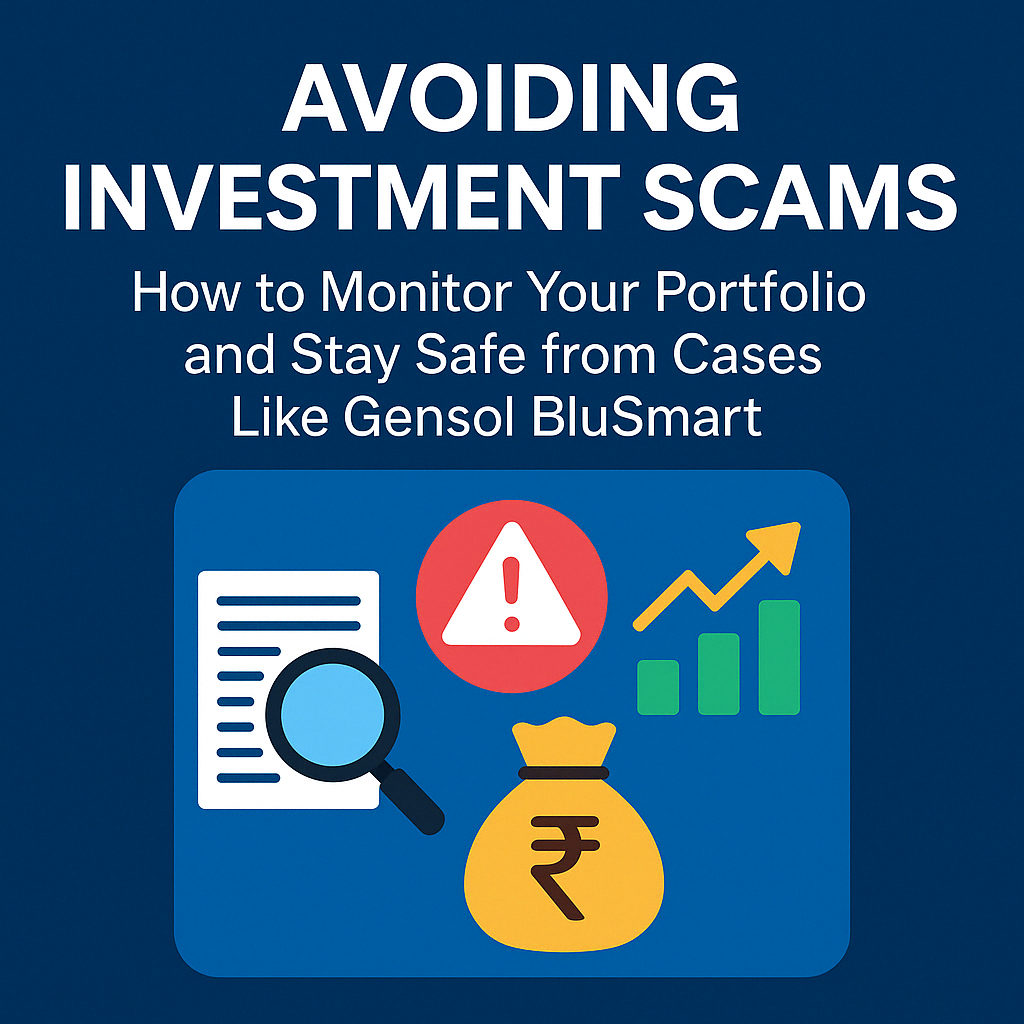
What is Hindenburg Research ?
If you’ve followed the news about big financial investigations, chances are you’ve heard of Hindenburg Research. But what exactly is this firm, and why has it been in the spotlight, especially in India? Let’s break it down.
Nathan Anderson founded Hindenburg Research in 2017. This is a US-based investment research firm that specializes in short-selling. This strategy makes investors profit based on a bet against companies whose stock prices are expected to fall. Hindenburg was different from any short-selling firm since it made the headlines by publishing sharp investigations about corporate fraud and mismanagement. This ranged from discovering inflated valuations to uncovering alleged Ponzi schemes, for which some of the world’s most powerful corporations were called into account.
Credentials of Nathan Anderson
The founder of Hindenburg, Nathan Anderson, isn’t a stranger to the world of finance. With certifications like CFA, or Chartered Financial Analyst, and CAIA, or Chartered Alternative Investment Analyst, Anderson married technical expertise with an investigative reporting sense that makes him inquire into sensitive matters connected to finance. He graduated with a degree in international business from the University of Connecticut before working in financial firms-including FactSet Research Systems-where he had an excellent foundation in financial data analysis.
Why Did Hindenburg Shut Down?
Nathan Anderson shocked the financial world with an announcement in January 2025: Hindenburg Research was shutting down. He had completed its final round of investigations, cases including alleged Ponzi schemes, before he made up his mind about shutting down. He said it was not any single reason behind this shutdown. He said, “There is not one specific thing—no particular threat, no health issue, and no big personal issue.” Rather, it was a personal choice to step away from the intense, all-consuming nature of his work.
Anderson reflected on the toll his career had taken on his personal life. “The intensity and focus has come at the cost of missing a lot of the rest of the world and the people I care about,” he shared. With enough financial security to support his family, Anderson plans to shift his focus to personal pursuits like traveling, spending time with loved ones, and investing in low-stress assets like index funds.
While some might question the timing of this decision—just days before a new US administration takes office—Anderson has made it clear that his decision was based on personal reasons rather than external pressures.
Hindenburg Research is Closed, and how it will effect Adani ?
The closure of Hindenburg Research, a prominent short-selling and investigative firm, can have nuanced effects on Adani Group, which was one of Hindenburg’s notable targets. Here’s an analysis of the potential impacts:
1. Relief from Future Investigations
- Immediate Impact: Adani may experience short-term relief as Hindenburg was one of the most vocal critics, whose reports had significant market repercussions.
- Reputational Breathing Space: With Hindenburg’s exit, there might be less scrutiny, allowing Adani to focus on rebuilding investor confidence and addressing outstanding concerns.
2. Market Sentiment and Stock Movement
- Volatility Reduction: Hindenburg’s reports often triggered sharp market reactions. Without their investigations, Adani’s stocks might experience reduced volatility related to negative allegations.
- Investor Confidence: Investors skeptical of Hindenburg’s claims might feel reassured, potentially stabilizing Adani’s stock prices.
3. Opportunity for Growth
- Strategic Positioning: The absence of Hindenburg’s influence could enable Adani to pivot the narrative toward its growth initiatives and financial performance.
- Enhanced Partnerships: With reduced controversy, Adani might find it easier to attract institutional investors and partners.
4. Lingering Challenges
- Existing Allegations: Hindenburg’s findings, particularly the 2023 report on Adani’s alleged stock manipulation and accounting irregularities, remain significant. Regulatory authorities and other critics may continue investigations independently.
- Global Investor Perception: Despite Hindenburg’s closure, global investors and market regulators may still demand transparency and stricter governance from Adani.
5. Emergence of New Investigative Players
- New Critics: The closure of Hindenburg might create opportunities for other activist investors or investigative firms to step in, possibly continuing the scrutiny on Adani.
- Regulatory Oversight: The market regulators might take a more active role in monitoring companies, compensating for the gap left by Hindenburg.
While Hindenburg Research’s closure might bring some immediate relief to Adani Group by reducing external scrutiny and controversy, the long-term effects depend on Adani’s ability to rebuild trust, ensure transparency, and address unresolved allegations. The absence of Hindenburg does not eliminate the broader need for corporate governance, and other critics or regulatory bodies may continue to exert pressure.
What Should Adani Shareholders Do Next?
If you are an Adani shareholder, you might be wondering what this means for you. Here are some practical steps to navigate the situation:
1. Monitor Regulatory Updates
Monitor the ongoing investigations of the Adani Group. Regulatory findings may impact the group’s market performance and reputation.
2. Assess Transparency
Examine the group’s financial reporting and governance. Transparency and accountability are two of the best indicators of a company’s health and stability.
3. Diversify Your Investments
Don’t put all your eggs in one basket. Consider diversifying your portfolio across different sectors and geographies to reduce risk.
4. Get Professional Advice
Get a financial advisor to help you understand how the current developments may affect your portfolio and whether you need to change your investment strategy.
Future Course of Action for the Adani Group
Rebuilding trust is the way forward for the Adani Group. It has to improve corporate governance, enhance transparency, and address the concerns of investors. Proactive communication with stakeholders will be helpful in regaining confidence.
Diversifying business operations, the group may also gain in terms of demonstrating resilience to criticism. In fact, long-term sustainability rather than short-term gains may help the Adani Group to come out of this difficult time more strongly.
Conclusion
Hindenburg Research may have shut its doors, but its impact on the financial world and, more specifically, on the Adani Group will be remembered for years. The firm’s reports highlighted the importance of accountability and transparency in global markets. For Adani shareholders, the key takeaway is to stay informed, diversify, and focus on long-term goals. Meanwhile, for Nathan Anderson, the end of Hindenburg marks the beginning of a new chapter-one focused on personal growth and well-being.
Moving forward, let us not forget that financial literacy and informed decision-making are the best tools to navigate any market, no matter how turbulent. For, after all, the objective is not just to grow wealth but to do so in a manner consistent with your values and aspirations.
Reference Articles :
- https://timesofindia.indiatimes.com/world/us/shook-some-empires-that-needed-shaking-short-seller-hindenburg-research-to-shut-down/articleshow/117281282.cms
- https://economictimes.indiatimes.com/markets/stocks/news/adani-group-stocks-in-focus-after-hindenburg-research-shuts-down/articleshow/117282825.cms?from=mdr
- https://hindenburgresearch.com/about-us/
- https://www.cnbc.com/2025/01/15/hindenburg-research-founder-says-hes-closing-short-seller-research-shop.html


Leave a Reply